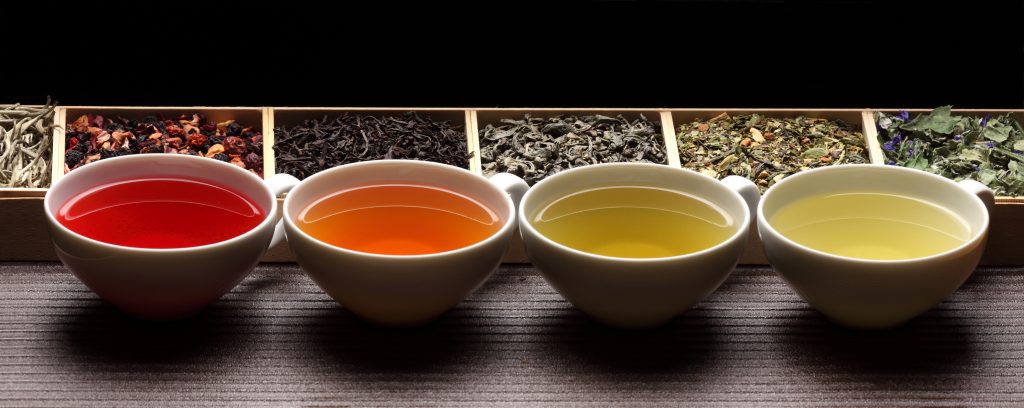Virtual Tea Time
Gené Jones keeps tradition flourishing
By Janna Zepp | Photography by Rebecca Bachtel
 Tea time. It must be England. Perhaps Downton Abbey. While tea time in England was introduced by Anna, the seventh Duchess of Bedford in 1840, drinking tea dates to 3000 BC in China and only became a popular practice in Great Britain in the 1660s thanks to King Charles II and Queen Catherine.
Tea time. It must be England. Perhaps Downton Abbey. While tea time in England was introduced by Anna, the seventh Duchess of Bedford in 1840, drinking tea dates to 3000 BC in China and only became a popular practice in Great Britain in the 1660s thanks to King Charles II and Queen Catherine.
A veteran soldier-turned-online-entrepreneur keeps the tradition of tea flourishing with a 21st Century twist from the Ebony Tea House in Belton. Chief Executive Officer/Owner Gené Jones dreams one day of owning her own tea room to host parties, events, and of course, afternoon teas in Central Texas.
But for now, a virtual service will suffice.
“I have always enjoyed making gift baskets for others,” Jones says. “I saw how subscription boxes had become very popular and wanted to go in that direction. I did not want to do customer subscriptions; I just wanted to put tea gift baskets in a box.”
Jones loves tea and everything about it. Collecting tea cups, tea pots, and entire tea sets has been a passion of hers all her life. She loves the social aspect of the afternoon tea tradition of the United Kingdom and the tea traditions of other countries. She has researched the history of tea, the tea industry, including the innovative new ways tea is produced.
Taking the tea business online as an independent businesswoman based in Central Texas is one challenge Jones has made fearlessly. In a time when the COVID-19 pandemic hamstrung most traditional businesses, Jones finds that her own business continues to grow, making her glad that she chose to begin her dream virtually.
Originally from California, Jones has been married to Charles Matthew Jones for 23 years. She holds a Bachelor of Science in Business Administration and Human Resource Management from Trident University in Cypress, Ca., which was earned while Jones was in the Army. She credits her Army career as an Automated Logistical Specialist and tour on kitchen patrol early in that experience as a benefit to her current occupation.
She says that having an online business presents challenges new to the business world.
“Getting your product known is hard, if you don’t use an influencer,” Jones says, adding that an influencer is someone online who affects the buying habits and actions of others by posting content on social media. She started the business in December 2019 and, while the tea house is a new company, she’s learned a lot already and has some advice for others considering an online business.
“Research the field (in which) you plan to start a business. Check and study the demographics your product is catering to. Be flexible, continually reevaluating and adapting your business to the changing times. Continue creating new projects/products,” Jones says.
Seeing the excitement and smiles on customers’ faces when they receive a gift basket from Ebony Tea House and meeting her customers personally is one of Jones’ joys in the business. But her greatest joy is raising her daughter and two sons. “(I love) seeing them grow up and develop their own self-awareness, personalities, opinions and choices,” she says. “They know they can count on me and I’ll always be there for them.”
Try a cup
All tea comes from one plant: Camellia sinensis, a species of evergreen that grows globally in warmer climates. Tea varieties originate from the terroir — where the plant grows — and the way the leaves are processed. All tea leaves start out green and become darker as they oxidize, a process that brings out and concentrates flavors.
Here are six classic teas to check out:
- Assam: For those wanting to drinking less coffee and more tea, Assam is a richly flavored beverage. From northeastern India, it is used in Irish and German breakfast teas.
- Pu-erh: A reddish-black Chinese tea from Yunnan province, pu-erh is aged and hardens as it dries. Like wine, pu-erh improves with age. Often, vintages are printed on the packaging.
- Darjeeling: A product of West Bengal, India, darjeeling is a black tea at maturity. Younger leaves make a lighter tasting white tea. Compared with Assam and pu-erh, Darjeeling tea leaves yield a lighter consistency, with a floral nose and slight astringency.
- Sencha: A rich, refreshing green tea from Japan with low astringency, sencha can be re-infused two or more times. Flavors change after each successive infusion.
- Gunpowder: The name refers to the tight balls into which the tea is sometimes rolled to preserve the fresh taste of the tender leaves. This is a rare green tea that often appears gray in color and has a slightly sweet aroma and taste.
- Oolong: The leaves are more oxidized than green, less oxidized than black, making it somewhat stronger and more astringent than green tea but less strong and astringent than black tea. Black tea drinkers will enjoy this middling favorite of tea connoisseurs.





